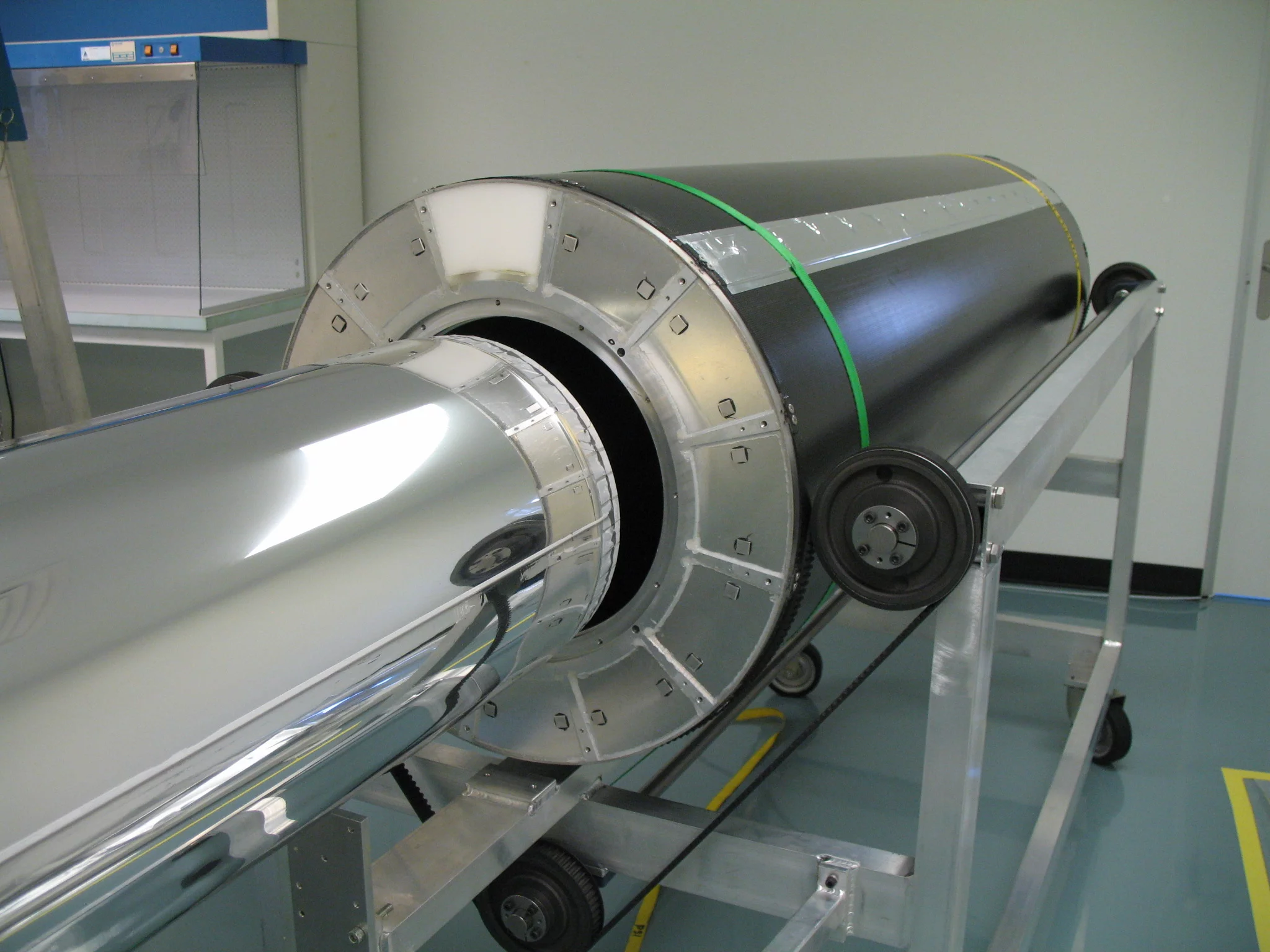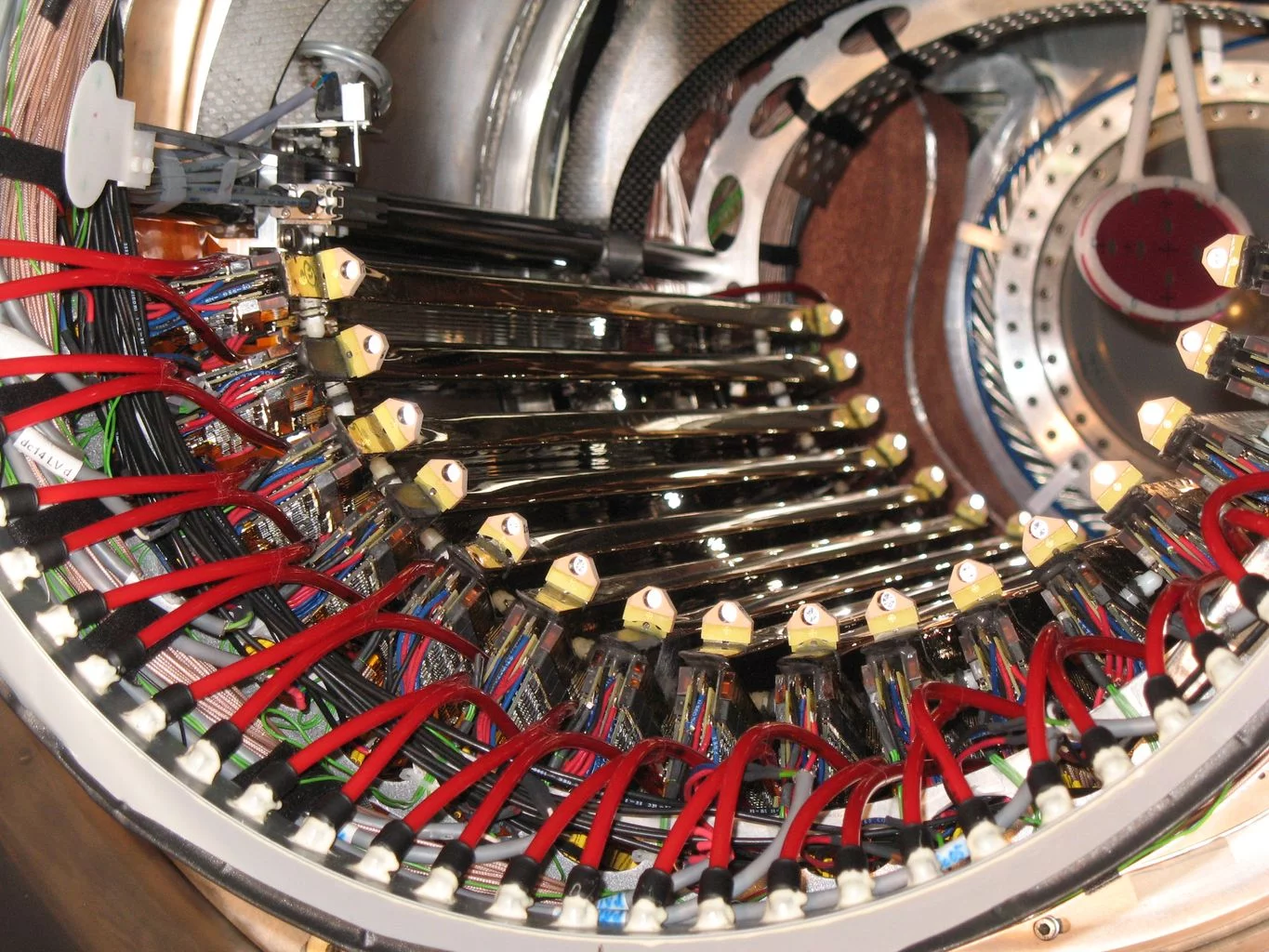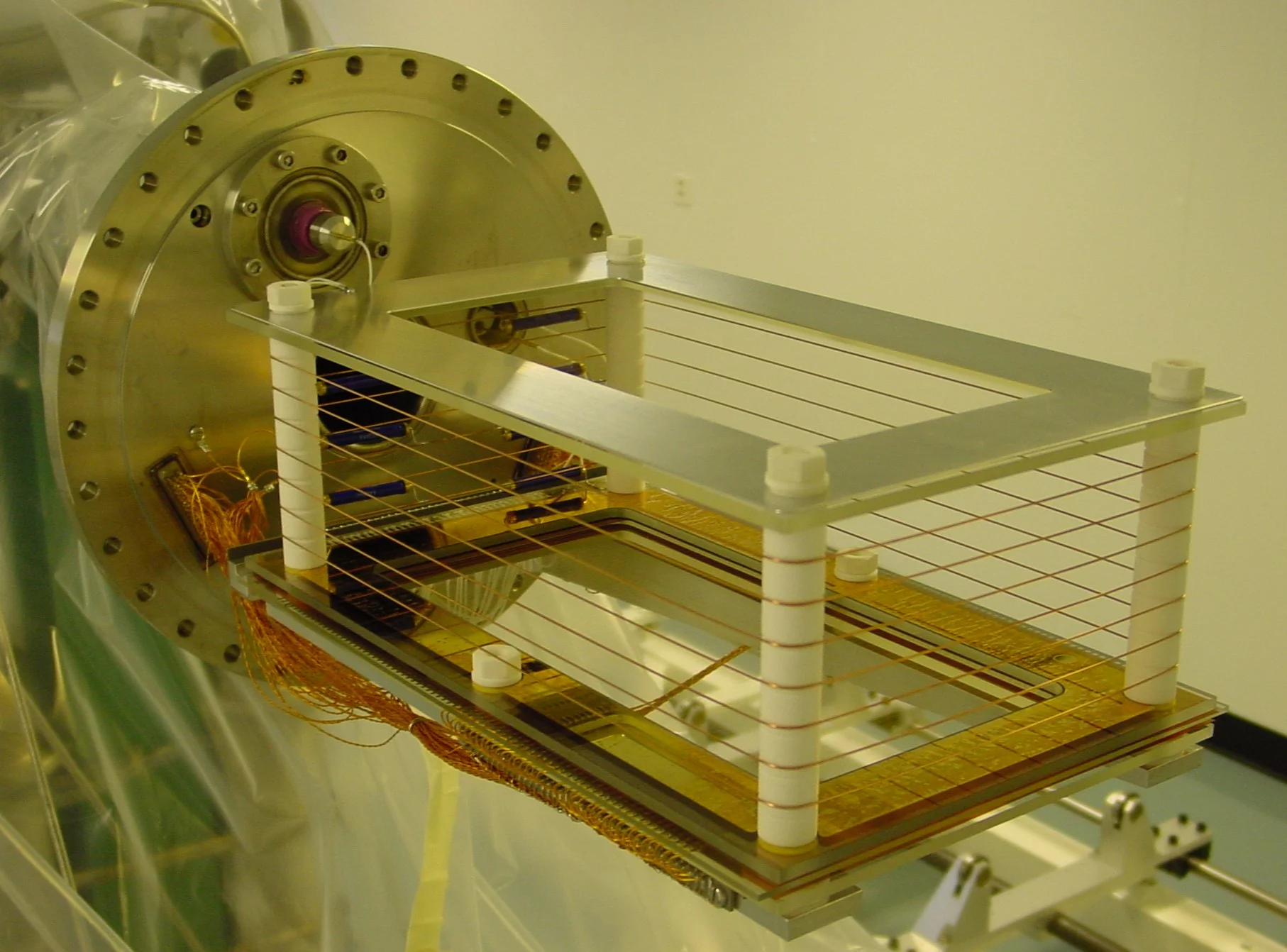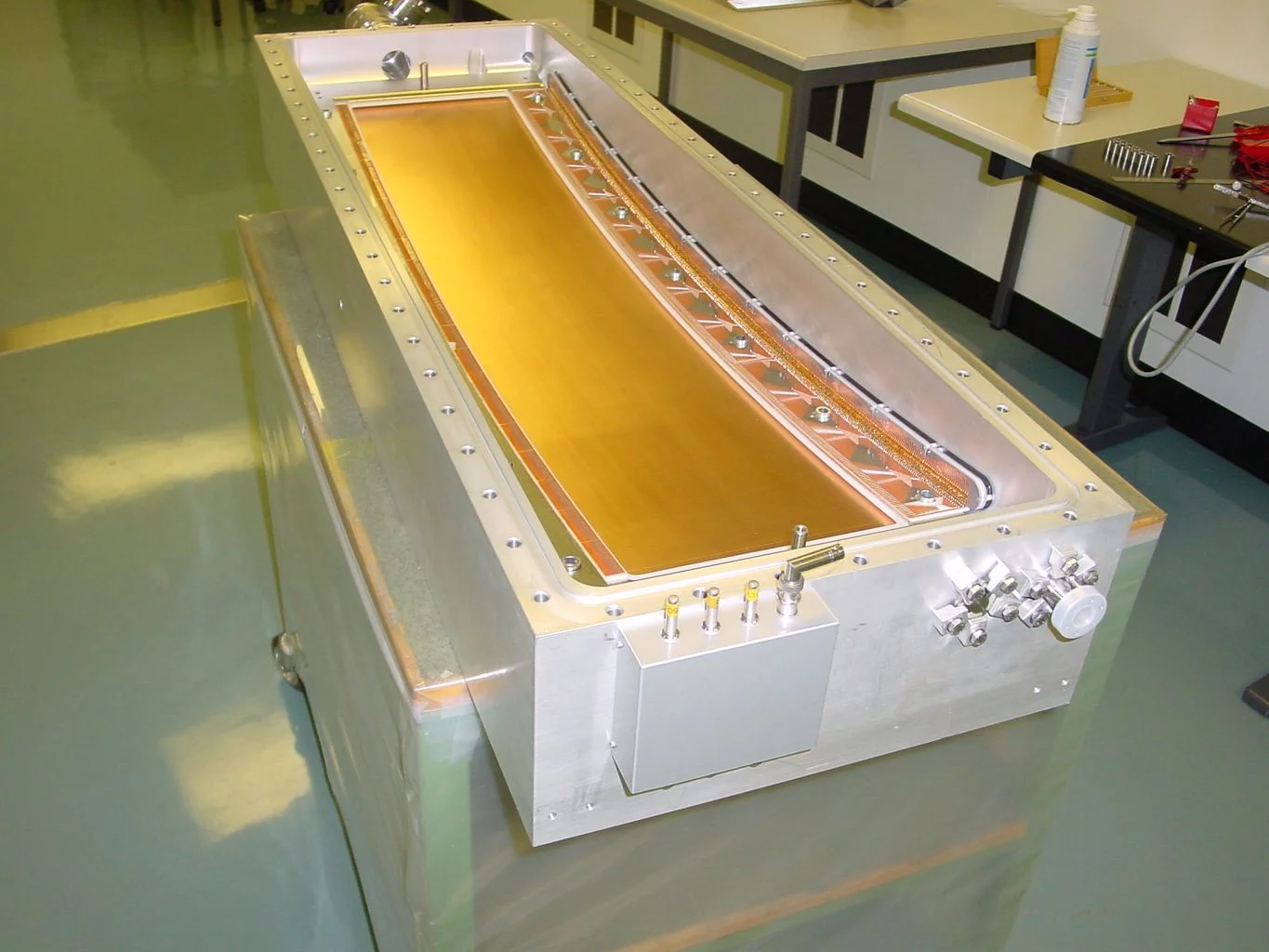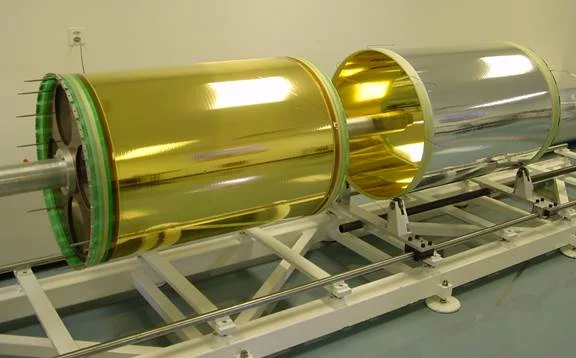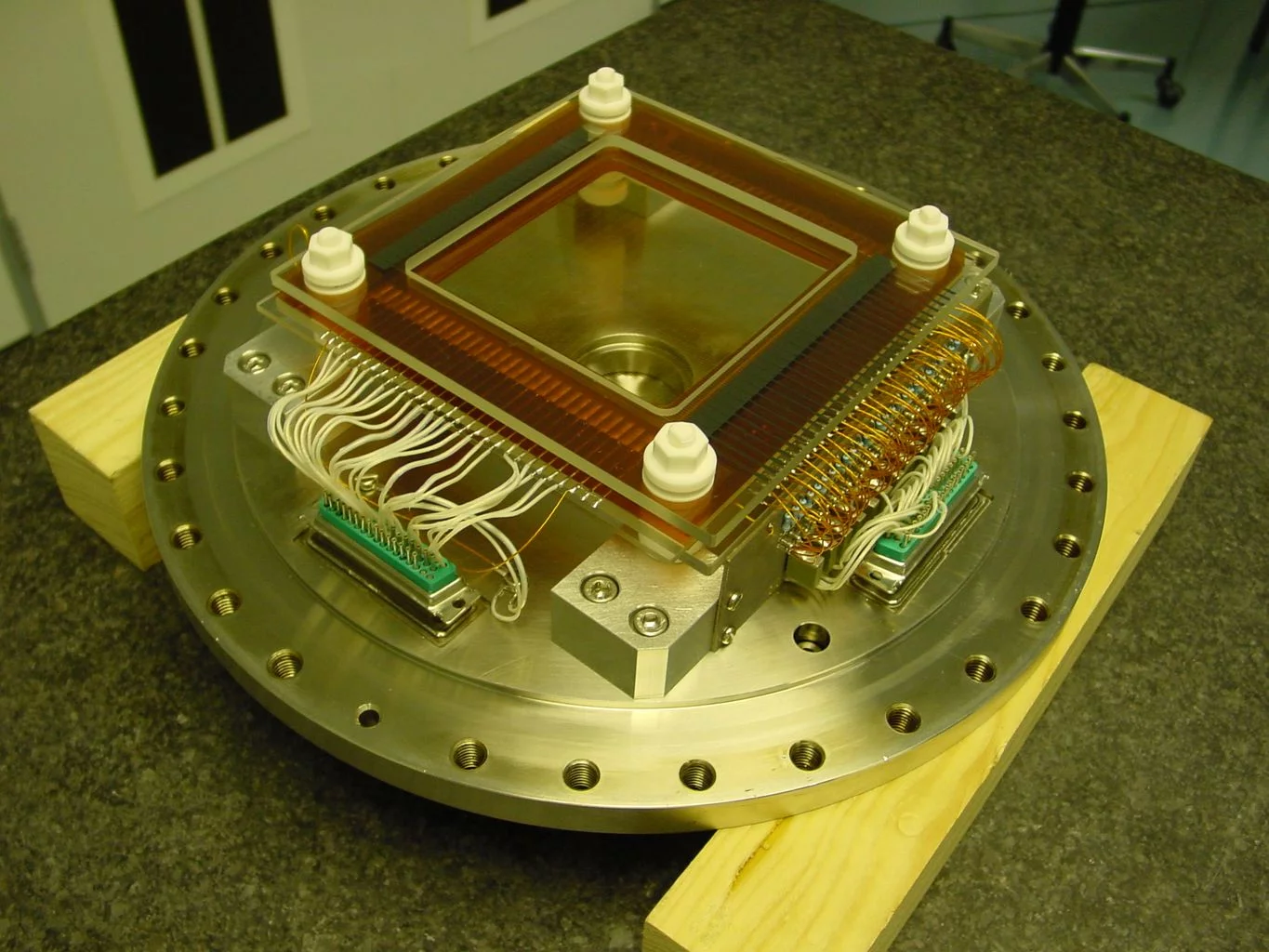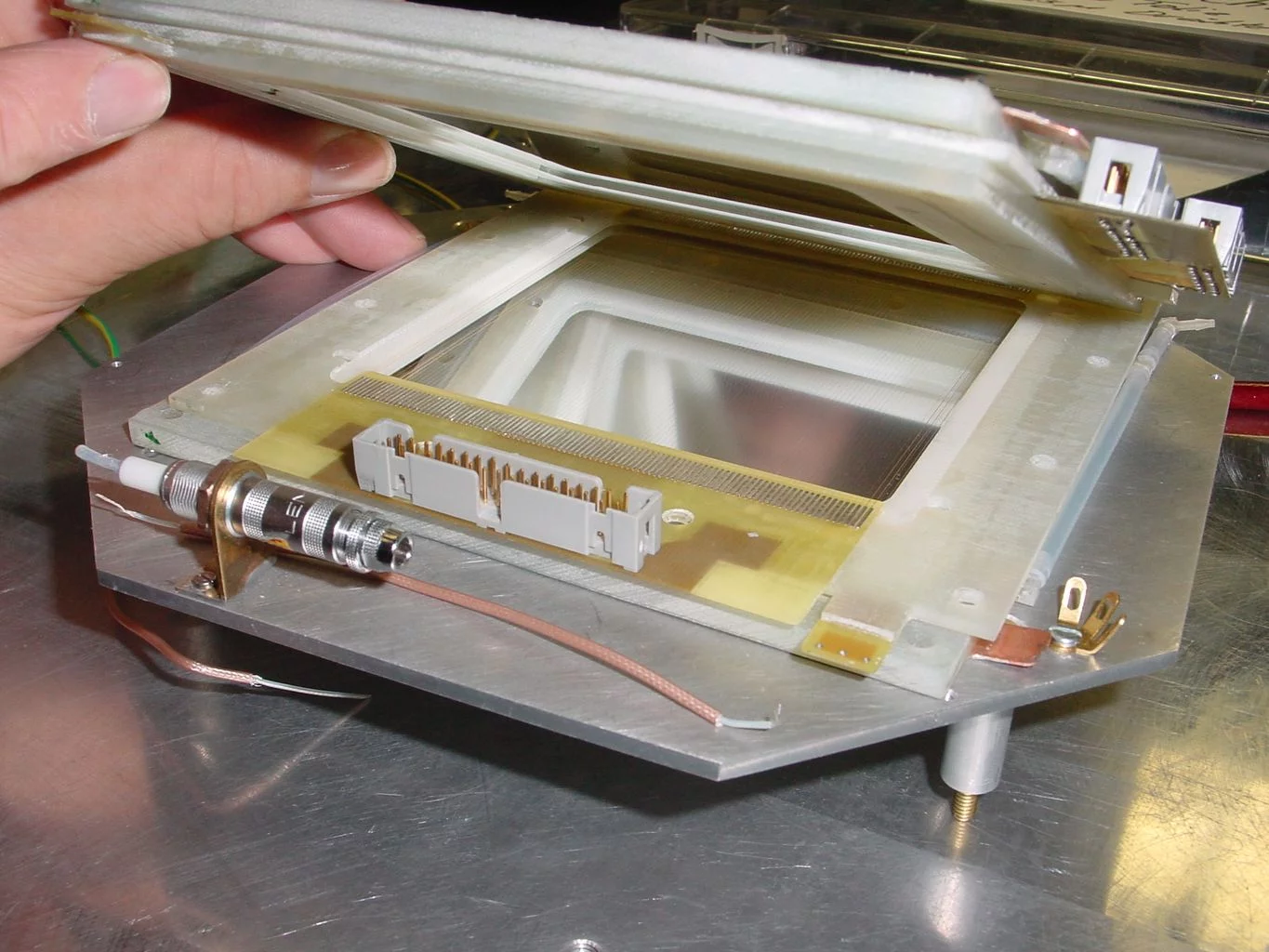Current project
Cylindrical Drift Chamber of the MEG II experiment
The MEG II experiment aims to improve the sensitivity for the search of the charged lepton flavor decay μ → eγ by a factor of 10 compared to the MEG experiment. For this purpose all sub-detectors of the previous MEG experiment will be upgraded and improved.
The new positron tracker will be a cylindrical drift chamber placed in the bore of COBRA magnet. The drift chamber is a joint development and construction effort of different institutes within the MEG collaboration.
MEG experiment home page.
D.F. Tassielli et al., "The drift chamber of the MEG II experiment", JINST 15 (9) C09051 (2020)
G. Chiarello et al., "An automatic system for the wiring of Drift Chambers for modern high intensity and high precision particle physics experiments", JINST 15 (7) C07034 (2020)
M. Chiappini et al., "Commissioning of the MEG II tracker system", JINST 15 (6) C06056 (2020)
A. Baldini et al., "The ultra-light Drift Chamber of the MEG II experiment", Nucl. Instr. and Meth. A958 (2020) 162152
M. Chiappini et al., "The new drift chamber of the MEG II experiment", Nucl. Instr. and Meth. A936 (20219) 501
G. Chiarello et al., "The construction technique of the new MEG II tracker", Nucl. Instr. and Meth. A936 (2019) 495
A. Baldini et al., “Gas distribution and monitoring for the drift chamber of the MEG II experiment”, JINST 13(2018) P06018
A. Baldini et al., “A new cylindrical drift chamber for the MEG II experiment”, Nucl. Instr. and Meth. A 824 (2016) 589
A. Baldini et al., " The design of the MEG II experiment", Eur. Phys. J. C 78 (2018) 380
A. Baldini et al., "MEG upgrade proposal", Research proposal submitted to the Paul Scherrer Institute Research Committee for Particle Physics at the Ring Cyclotron arXiv:1301.7225
Recent projects
Drift Chamber system of the MEG experiment
The drift chamber system of the experiment was designed to ensure precision measurement of the positron from the decay and it had to fulfill several requirements: it must cope with a very high number of Michel positrons due to the very high muon stopping rate, it must be a low-mass tracker as the momentum resolution is limited by multiple scattering and to minimise accidental gamma-ray background by positron annihilation in flight and it must provide excellent position resolution, both in r-direction and z-direction. The drift chamber system consisted of 16 independent modules, placed in the bore of COBRA magnet.
MEG experiment home page.
J. Adam et al. (MEG Collaboration), “The MEG detector for μ → eγ decay search”, European Physical Journal C (2013) 73:2365
M. Hildebrandt, “The low-mass drift chamber system of the MEG experiment”, Nuclear Science Symposium Conference Recordings (NSS/MIC), 2011 IEEE, 1757
M. Hildebrandt, “The drift chamber system of the MEG experiment”, Nucl. Instr. and Meth. A 623 (2010) 111
Time Projection Chamber of the MuCap experiment
The TPC was operated in pure protium gas at 10 bar inside a pressure vessel and tracked the incoming muon trajectory in three dimension to identify muon stops in the sensitive gas volume. The construction of the TPC and its operation in high pressure hydrogen was a very challenging task due to the requirement of ultra-high purity (low-outgasing and bakeable materials), the operation at very high applied voltages and the non-quenching properties of the counting gas.
MuCap experiment home page.
J. Egger et al., “A High-Pressure Hydrogen Time Projection Chamber for the MuCap Experiment”, European Physical Journal A (2014) 50:163
J. Egger, M.Hildebrandt and C. Petitjean, “The 10 bar hydrogen time projection chamber of the MuCap experiment”, Nucl. Instr. and Meth. A 628 (2011) 199


